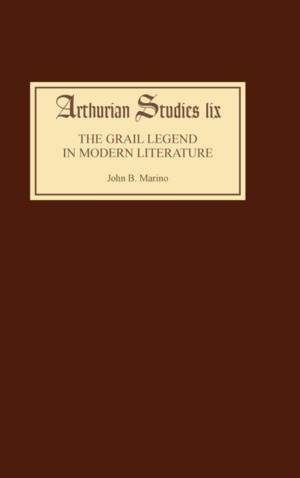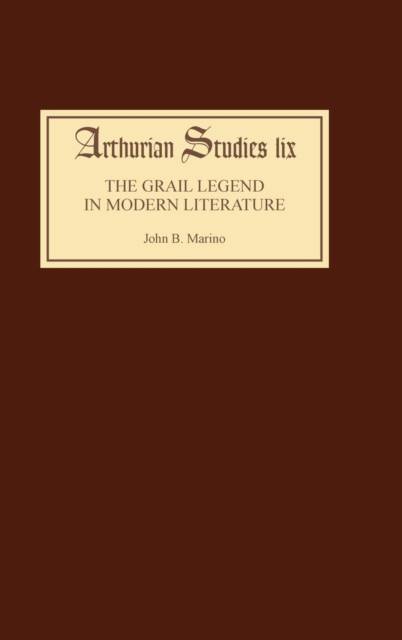
En raison d'une grêve chez bpost, votre commande pourrait être retardée. Vous avez besoin d’un livre rapidement ? Nos magasins vous accueillent à bras ouverts !
- Retrait gratuit dans votre magasin Club
- 7.000.000 titres dans notre catalogue
- Payer en toute sécurité
- Toujours un magasin près de chez vous
En raison de la grêve chez bpost, votre commande pourrait être retardée. Vous avez besoin d’un livre rapidement ? Nos magasins vous accueillent à bras ouverts !
- Retrait gratuit dans votre magasin Club
- 7.000.0000 titres dans notre catalogue
- Payer en toute sécurité
- Toujours un magasin près de chez vous
Description
The Grail legends have in modern times been appropriated by a number of different scholarly schools of thought; their approaches are analysed here. This study shows how modern (including postmodern) adaptations of the Grail legend correspond to trends in the scholarly community and how the legend has been appropriated by competing world-views. There are three parallel trendsin Grail scholarship and modern adaptations of the legend: controversy over Christian or pagan origins, secularization by way of humanism, and esoteric mysticism. These three trends reflect movements in popular culture. Relativismand multiculturalism influence Christian--pagan cultural conflict in the adaptations. Mythographers maintain the legend's appeal in a humanist culture by considering the Grail metaphor rather than material actuality; modern adaptations then transform the Grail from a particularly Christian symbol to one with universal application in an increasingly secular society. Modern esoteric spiritualities allow the Grail actuality with flexible meaning. This study, then, demonstrates how the Grail legend is transformed and adapted from medieval to modern cultures and continues to evolve today.
JOHN B. MARINO is adjunct instructor, Maryville University and Saint Louis University.
JOHN B. MARINO is adjunct instructor, Maryville University and Saint Louis University.
Spécifications
Parties prenantes
- Auteur(s) :
- Editeur:
Contenu
- Nombre de pages :
- 188
- Langue:
- Anglais
- Collection :
- Tome:
- n° 59
Caractéristiques
- EAN:
- 9781843840220
- Date de parution :
- 14-10-04
- Format:
- Livre relié
- Format numérique:
- Genaaid
- Dimensions :
- 164 mm x 241 mm
- Poids :
- 458 g

Les avis
Nous publions uniquement les avis qui respectent les conditions requises. Consultez nos conditions pour les avis.






